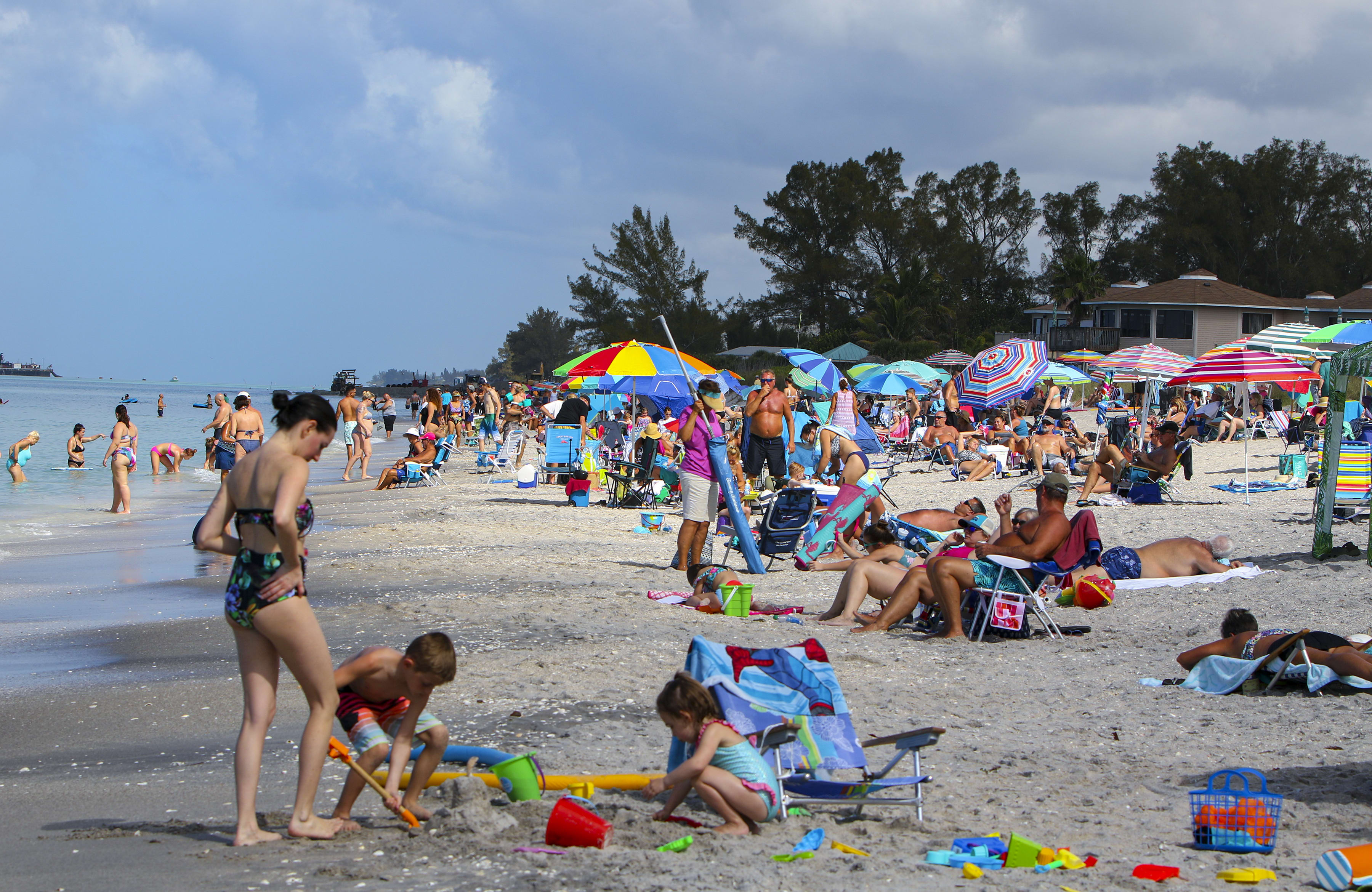
Florida’s treasurer, Jimmy Patronis, on Wednesday dismissed concerns about the impact that spikes of coronavirus cases will have on the state’s welfare and economy.
“People love to come to Florida,” Patronis said in a phone interview. He said he saw an opportunity for “profit-taking” as the state benefits from what he predicts will be more remote workers moving to the state.
He likened Florida’s opportunities to those before American Airlines, which recently upsized a stock and notes offering to help strengthen its balance sheet. The airline, which is burning $40 million a day, has said it expects revenue to fall 90% in the second quarter from a year ago, as the pandemic has brought travel to a halt.
“They’re going out there and not having any trouble raising money,” he noted.
His comments come as New York, New Jersey and Connecticut have announced they will impose a 14-day quarantine on travelers from coronavirus hotspot states, including Florida.
Florida on Wednesday reported another record spike in coronavirus cases, up 5.3% in a day, sparking concerns in investors that drove the market down 700 points.
“There are always those that are fearful,” Patronis said of the market drop. “This is a buying opportunity.”
Florida has been criticized as not acting aggressively enough to tackle the coronavirus outbreak, imposing less rigorous regulations on residents than did states such as New York and Connecticut, and unwinding those restrictions too quickly. Former Food and Drug Administration Commissioner Dr. Scott Gottlieb said on CNBC’s “Squawk Box” on Monday that unlike states in the Northeast, Florida reopened its economy “against a backdrop of a lot of spread.”
White House health advisor Dr. Anthony Fauci said Tuesday that parts of the U.S. are beginning to see a “disturbing surge” in coronavirus infections.
When asked about those criticisms Patronis said Florida Gov. Ron DeSantis is “doing everything right” by the guidelines established by the Centers for Disease Control and Prevention. He said that Florida would be willing to “pivot” its plans as the coronavirus evolves.
Still, some companies have acted even before state authorities have. Levi Strauss & Co. Chief Executive Chip Bergh has said the jeans retailer may need to close stores in certain states. Apple said it will close two Apple stores in Florida, along with closures in North Carolina, South Carolina, Arizona and Texas, as the virus reemerges.
“I love my iPhone, but I don’t buy it in a store,” Patronis remarked, saying Apple’s stores are more for marketing than they are for sales.
“It’s what they want to do for the morale of their employees,” he said of the closures. “Whatever Tim Cook likes to do.”
Patronis was equally unbothered by the news that New York, New Jersey and Connecticut will impose a quarantine on visitors from Florida. In fact, he said he is confident that Florida will come out from the other side of the pandemic stronger than states such as New York, touting Florida’s low tax rate.
That low tax rate, though, makes the state uniquely dependent on tourism for its revenue. As the travel and tourism industry has been ravaged by the pandemic, Florida has seen revenue dry up. The state’s revenue collection in April was more than $878 million below estimates, according to the legislature’s Office of Economic and Demographic Research.
Patronis said the state continues to see a strong boating and housing market, the latter of which he said will benefit as he predicts remote workers from the Northeast move to Florida in search of beaches and lower taxes.
When asked whether New Yorkers will want to move to Florida if cases of the coronavirus continue to tick up, Patronis said there are fewer hotspots in “rural areas.”
If that revenue is not enough to replace that which Florida might lose in tourism, Patronis said the state has billions in reserve in a state stabilization fund, as well as a state catastrophe fund. Still, Florida is planning on having every state agency cut 6% of its budget, which must be approved by July 1. Florida is still hoping for more financial relief from Congress through money from the CARES Act, or other measures such as an infrastructure bill.
While a stand-alone infrastructure bill is unlikely before the 2020 presidential elections, White House and Republican negotiators are planning to hold formal negotiations on a fourth coronavirus stimulus package in July, CNBC has reported.
Leave a Reply